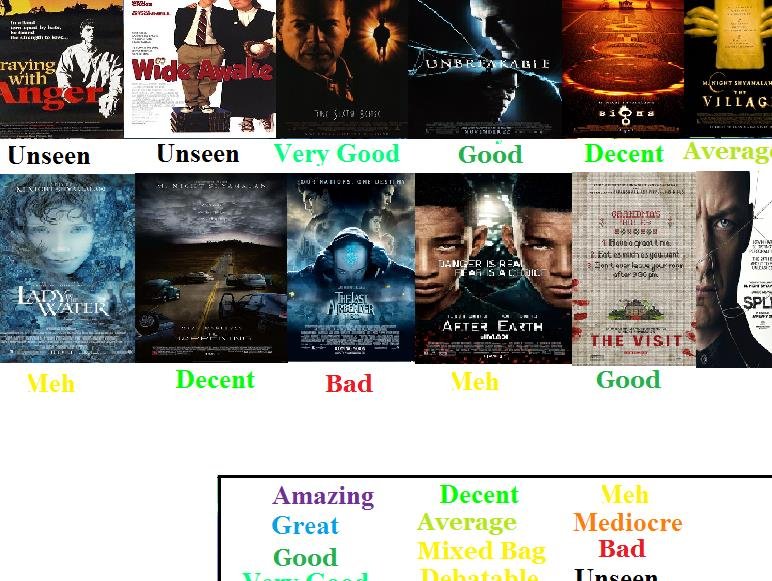Filmmaking isn’t a walk in the park. Most Hollywood projects lean on existing stories to jumpstart the creative process and ensure there’s an audience ready to watch. M. Night Shyamalan, a name synonymous with suspense and unexpected twists, is no exception. Interestingly, all five of his favorite movies share a unique similarity: they’re all based on books.
The Power of Source Material
Books offer a rich tapestry for filmmakers. Unlike visual mediums like comics or video games, novels leave much to the imagination, allowing directors to craft their visions more freely. Shyamalan appreciates this flexibility, as it lets him infuse his films with depth and creativity. He believes that the essence of a great story lies in its source material, providing a solid foundation upon which cinematic magic can be built.
Shyamalan’s Favorite Films
Here’s a look at the five films that hold a special place in Shyamalan’s heart:
- The Godfather
- Jaws
- The Exorcist
- Being There
- Rebecca
Each of these films is a masterclass in storytelling, seamlessly blending intricate plots with compelling characters.

Why Books Matter in Filmmaking
Books offer more than just a storyline. They provide detailed character development, intricate plots, and emotional depth that can be challenging to translate onto the screen. Shyamalan values this depth, as it allows for a more nuanced adaptation. By drawing from well-crafted novels, filmmakers can create movies that resonate on a deeper level with audiences.
The Godfather: A Masterpiece of Adaptation
Shyamalan’s favorite film, The Godfather, is a prime example of a successful book-to-film adaptation. The movie captures the essence of Mario Puzo’s novel, portraying the intricate dynamics of the Corleone family with authenticity and depth.
- Intimate Storytelling: The film delves deep into the personal lives of its characters, making their struggles and triumphs relatable.
- Organic Plot Development: The storyline flows naturally, avoiding contrived twists and maintaining a believable narrative.
Shyamalan’s Own Adaptations
While Shyamalan is known for his original stories, he has ventured into adaptations with mixed results. Films like The Last Airbender and Old faced criticism, but Knock at the Cabin was better received. This film, based on Paul G. Tremblay’s novel, showcases Shyamalan’s ability to honor the source material while adding his unique flair.
Balancing Originality and Faithfulness
Adaptations require a delicate balance between staying true to the original and introducing fresh perspectives. Shyamalan understands this balance, often taking creative liberties to enhance the story without losing its core essence. This approach ensures that the film stands on its own while respecting its literary roots.
The Influence of Favorite Films on Shyamalan’s Work
Shyamalan’s admiration for his favorite films is evident in his own filmmaking style. He incorporates elements like suspense, complex characters, and unexpected twists, drawing inspiration from classics like The Exorcist and Jaws. These influences shape his narratives, making his films engaging and thought-provoking.
Crafting Suspense and Mystery
Much like The Exorcist, Shyamalan excels at building suspense and maintaining an air of mystery throughout his films. This technique keeps audiences on the edge of their seats, eagerly anticipating what comes next.
- Layered Storytelling: Shyamalan weaves multiple plot threads, creating a rich and immersive narrative.
- Character-Driven Plots: His films focus on character development, ensuring that the audience forms a connection with the protagonists.
The Enduring Legacy of Book-Based Films
Book-based films often enjoy a lasting impact, thanks to their rich narratives and deep characterizations. Shyamalan recognizes this legacy, using it to inform his own storytelling techniques. By studying these classic adaptations, he gains insights into creating compelling and memorable films.
Table: Shyamalan’s Favorite Films and Their Sources
| Movie Title | Original Book Author | Year Released |
|---|---|---|
| The Godfather | Mario Puzo | 1972 |
| Jaws | Peter Benchley | 1975 |
| The Exorcist | William Peter Blatty | 1973 |
| Being There | Jerzy Kosiński | 1979 |
| Rebecca | Daphne du Maurier | 1940 |
This table highlights the diverse range of genres and storytelling styles that Shyamalan admires, from crime dramas to psychological thrillers.
Embracing Classic Narratives in Modern Cinema
In an era dominated by remakes and reboots, Shyamalan’s preference for literary adaptations stands out. He champions the idea of building upon classic narratives, breathing new life into timeless stories. This approach not only honors the original works but also introduces them to new generations of viewers.
The Art of Adaptation
Adapting a book requires more than just translating text to screen. It involves capturing the essence of the story, understanding the characters’ motivations, and conveying the underlying themes effectively. Shyamalan excels at this, ensuring that each adaptation is both faithful and innovative.
- Respecting the Source: He maintains the integrity of the original material while adding his creative touch.
- Enhancing Storytelling: Shyamalan uses cinematic techniques to amplify the emotional and psychological impact of the story.
The Future of Adaptations in Shyamalan’s Career
As Shyamalan continues to evolve as a filmmaker, his appreciation for literary adaptations remains a cornerstone of his creative process. Future projects are likely to reflect this, with a focus on stories that offer depth and complexity.
Upcoming Projects to Watch
Fans can look forward to Shyamalan’s upcoming adaptations, which promise to blend classic storytelling with his signature suspenseful style. These films are expected to continue his legacy of creating thought-provoking and emotionally resonant cinema.
- New Novel Adaptations: Potential projects based on contemporary bestsellers.
- Reimagined Classics: Fresh takes on timeless stories with a modern twist.
M. Night Shyamalan’s admiration for book-based films underscores the importance of strong source material in filmmaking. His favorite movies demonstrate how literature can inspire some of the most memorable and impactful films in cinema history. As Shyamalan continues to draw from these influences, his work remains a testament to the enduring power of storytelling.








